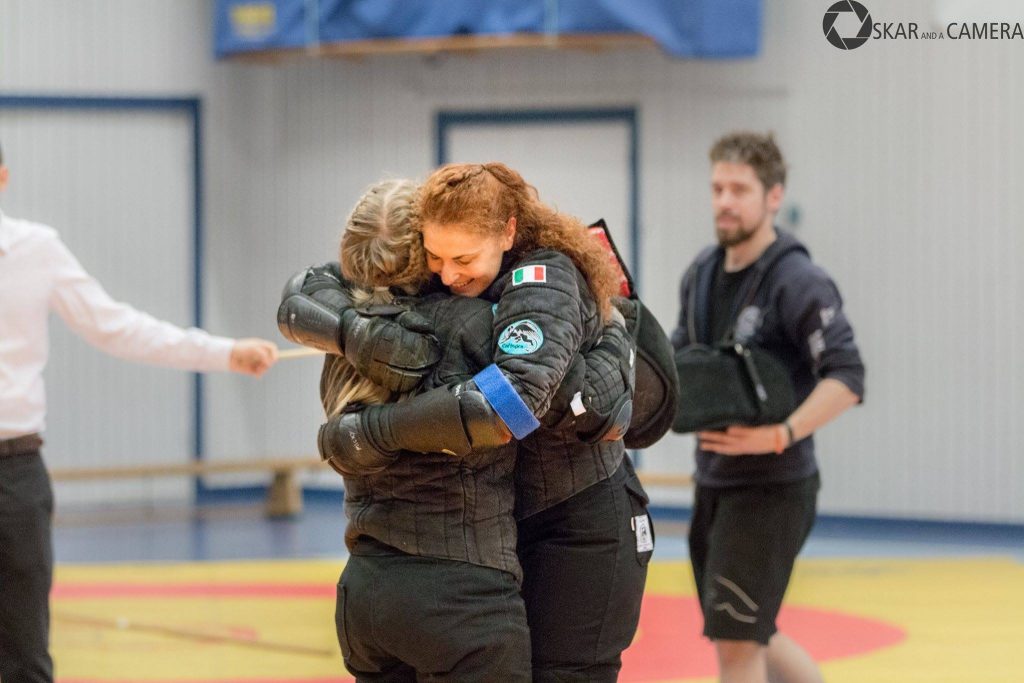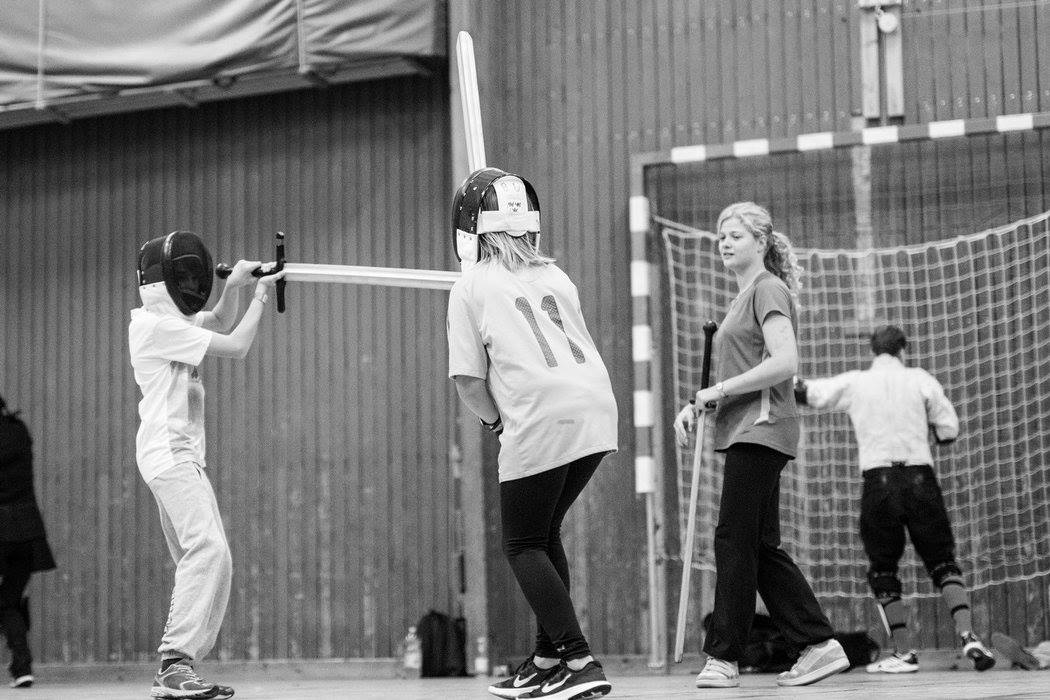How do you grow from adversity? How do some people who face adversity keep fighting against all odds? For any martial artist, mental strength is essential and it’s also one of the things martial arts can teach us that we can benefit from in our daily lives.
Mental strength is what makes you train even when you don’t feel like it, and it’s what makes you continue training year after year, even when you don’t want to or when life hits you like a brick to the face. Historically, of course, mental toughness also allowed people to face death rather than lose honour, or to walk onto the battle field in spite of fear. But how do you get mentally stronger and more resilient towards adversity?

Jonathan Haidt is a social psychologist who in recent years has become quite popular, partially due to his participation in the Joe Rogan show where he talked about how to make kids tougher. Haidt talks about a concept which he calls antifragile. It is the opposite of fragility, but it’s not the same thing as not being fragile. Think of a glass, he explains, it is fragile and if you drop it, it will break. So, if you make a glass out of plastic it won’t break if you drop it. But what do you call a glass that not only doesn’t break, but becomes stronger when you drop it?
Our immune system is like that. If you do not expose it to challenges, it will not grow stronger. The same is true for our muscles. And our minds are too. If a child is completely protected from all hardships, they will become more fragile. It is from opposition and being exposed to the world that we grow and become adults who are prepared to handle what is thrown in our way. This is what Haidt means with antifragile.
Become stronger through adversity
It’s not an exactly new idea. Seneca wrote that “Excellence withers without an adversary.” Similarly, historical sources – not the least books on knighthood – tell us the importance of testing ourselves, to live disciplined lives and to not be sedentary. Most of us live in societies where we are pampered to a much greater degree than the societies where the fencing masters lived. So, it’s probably safe to say that in many ways, we are more fragile than they were.
Regardless if you are training for a competition, for self-defense or dueling, mental strength will help you. More than that, it will help you in life in general. If you are mentally strong, you are more likely to be able to handle all the things we as humans have to face sooner or later; failure, unemployment, responsibility, stress, hard choices, injury, illness, death and loss of those we love.
“Take example from the wrestling masters. Hath the boy fallen down? Get up again, they say; wrestle again, till you have acquired strength.” Epictetus, Discourses.
Here are a couple of strategies to grow your mental strength:
Memento mori
Think about death. And not just death, spend a part of your day processing difficult things, the worst things that can happen. Don’t shy away from it, instead make sure you actually confront your worst fears. Due to how our brains are equipped, our minds will protect us from the things that make us most uncomfortable, so just thinking may not work. Instead, activate your brain’s executive functions by writing down your contemplations, or by talking about them. This will help you prepare for that which you fear, and should it actually happen you will be better equipped to handle it.
Another thing you can do, is to read and seek out those who have been exposed to the things you fear, and learn from their experience and actions, regardless if they had good or bad outcomes.

Celebrate the good things
Set aside time to be thankful. If you are religious, include that which you are grateful for in your prayers. If you are not religious, meditate on the good things that happened to you, that you did, or that you appreciate in your life. When you have success, make sure to celebrate it, preferably with others. By making note of your triumphs, you will see the journey you’ve done more clearly. And you will also learn appreciation, and formulate to yourself that which is truly important to you.
Do a tough thing every week
Get into a habit of responding to anything that you feel resistance towards with grit, even enthusiasm. By doing so, you will accustom your mind to addressing challenges, and you will have a higher tolerance for hardships. Try to keep note of when you overcome obstacles, write things down or meditate on them, regardless if it’s getting to training even if you didn’t feel like it or making big life choices.

Don’t fall for victim mentality
In the West, we live in a victim culture, which means that people blame their failures on circumstances, on other people. Although it’s important to look at causes for failures with open eyes, it’s counterproductive to use victimhood as a cop out. Equally, self-demeaning narratives where you blame yourself entirely, is equally destructive. Don’t be that person, aim to be a strong and responsible man or woman who tries to look clearly on issues, and search for a path forward.
Make those who have overcome hardships your role models and be inspired by people who manage to push through. You cannot be the true helmsman of your own existence, to paraphrase Nietzsche, if you view yourself as a victim.
One of the great stoic philosophers, Epictetus, learned the hard way about life’s injustices as he was born a slave. He said that we cannot control external events, but we are responsible for how we handle them. For Epictetus, each difficulty was an opportunity to grow stronger.
Control your emotions
Another stoic philosopher was the Roman Emperor Marcus Aurelius. He wrote: “You have power over your mind – not outside events. Realize this, and you will find strength.” If you are constantly angry and blame the world for your situation, you can keep yourself perpetually upset. Understand that your emotions are yours to own, and they will do very little to change anything. In fact, stress can motivate you, but in most cases emotional responses will keep you from viewing any situation rationally. Your judgment will be clouded. Stress of the right kind is positive if you manage to contain the emotional responses.
Another reason for controlling your emotions is that if you have ever been in a situation that’s stressful – like being threatened with violence or getting fired – you will know that it’s hard to come up with a creative response in that moment. The reason is that stress makes us uncreative, and reduces our ability to lateral thinking. You can read more about that here. But at the same time, a manageable stress level can make you more productive, smarter and stronger.
Serve from above
One of the great things about owning your own emotions and trying to become stronger, is that it’s a road to success in life in general. It is likely to lead to other people asking you to accept responsibility. You should accept it and you will likely learn a lot from doing so. Perhaps you will also understand the hardships of leadership, and gain a greater appreciation for other leaders in your life as well.
When you have accepted responsibility, and you own that responsibility, make sure you do not use it for egotistical purposes. To be a leader is to serve from above. The leader is part of a greater community, and if you are not serving it, you should be replaced. Having said that, as a leader, you should do what is right, not what is popular.

Set SMART goals
SMART is an acronym for Specific, Measurable, Attainable, Relevant and Timely which is often used in project management. If you set goals for yourself that aren’t SMART, there is a high risk that you will eventually feel that you are not going forward. Staying motivated is the best way to overcome hardships and for every hardship you overcome, you will grow stronger.
Don’t protect your ego
When we are children, we avoid being blamed even for things that we clearly did. As we grow, we learn that it isn’t acceptable and we start owning situations. Unlike the child, an adult solves problems even when they didn’t cause them.
To some degree, we all protect our ego with defense mechanisms. Get into the custom of taking mental notes of your defense mechanisms. It can be anything; if you tend to blame every other driver for everything in traffic, analyse what you could have done to solve situations as smoothly as possible instead of pointing fingers. If someone is unskilled or behaves like an idiot, be thankful you aren’t like that instead of getting upset.
Give up a bad habit
It’s not possible to change everything overnight. But it is possible to change one thing at a time. By doing so, you will get accustomed to changing and improving yourself. This creates mental resilience and confidence, because you then know that you can challenge yourself and make things better.
Family, friends and meaning
Aaron Antonovsky was a sociologist who studied how we handle stress. He wondered why some stress leads to positive outcomes, but other people and forms of stress breaks people. His response was not to focus on the social pathogens (that which makes us sick), but instead on the positive counterpart: salutogenesis (that which makes us healthy). He concluded that our resources affect how well we handle stress, and one of the main resources is a sense of coherence; that we are connected to the context of our lives and have a sense of comprehensibility, manageability and meaningfulness. Salutogenesis depends on experiencing a strong “sense of coherence”.
Having a strong community around you is therefore very important. These are the people who provide social support and who you are working with towards a common goal, people who have your back when things go sideways. Together, you create a sense of coherence for each other. So, it’s naturally important that you spend time and try to build these relationships, and that you are there for others who need you.

Own your values
If you ask people what they believe, they will likely paint a rosy picture, claiming all kinds of moral positions. If you truly challenge them on how they live according to their values, things will become less black and white. In short, virtue signaling is easy, being principled is hard. The question you need to ask yourself is if you’re interested in coming off as a good person, or if you are interested in being a good person. By not just making claims, but trying to live a life according to your morals and beliefs, you refocus your efforts on becoming a responsible person. To once again quote Marcus Aurelius: “Waste no more time arguing about what a good man should be. Be one.”
Thank you!
A big thank you to Dr. Earta Norwood for giving me valuable feedback and input. All faults and errors in this text are entirely my own. If you are in need of counselling, please contact a professional.





Love your blog, Anders! I was reminded of Antifragility by Nassim Taleb 🙂
Glad you like it!